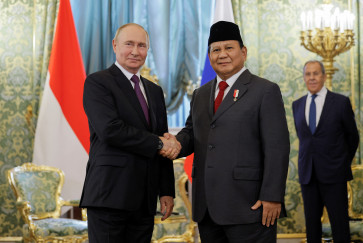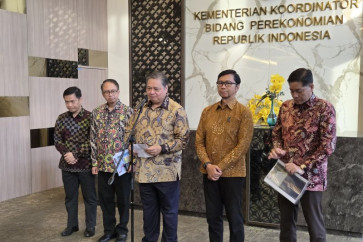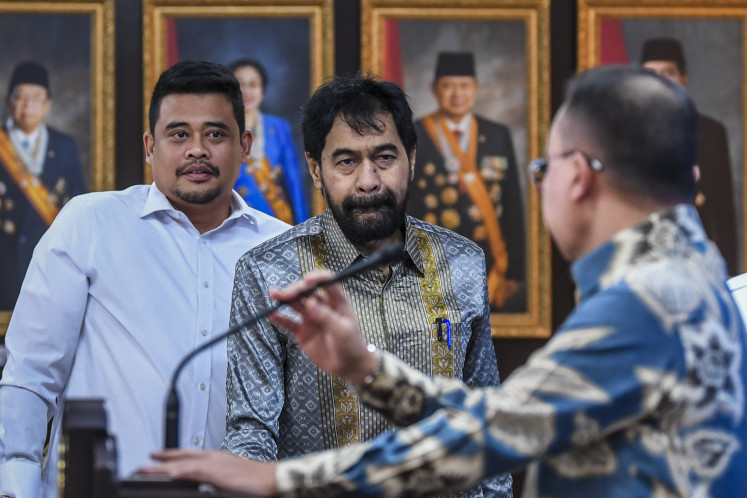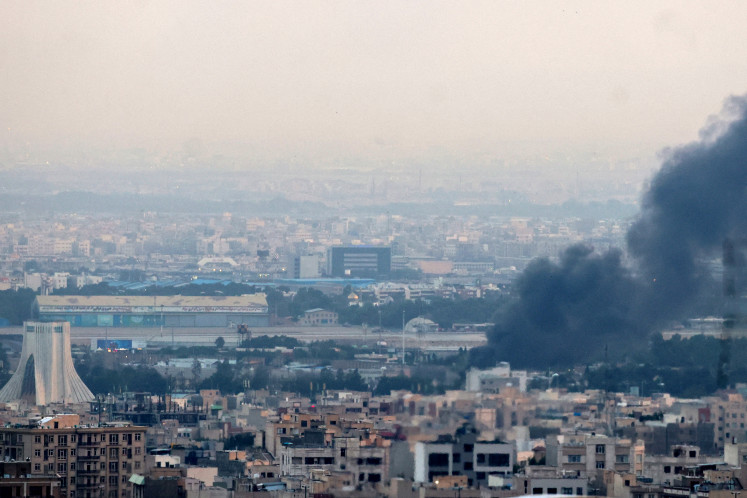Popular Reads
Top Results
Can't find what you're looking for?
View all search resultsPopular Reads
Top Results
Can't find what you're looking for?
View all search resultsStop corruption: Abolish the national exam
In the Indonesian educational system, everybody cheats
Change text size
Gift Premium Articles
to Anyone

I
n the Indonesian educational system, everybody cheats. Or at least that's what I came to believe during nearly two years as a visiting English teacher in local high schools in Kalimantan and Sumatra.
During my first month in the classroom, I helped proctor an exam. As the co-teacher passed out the test, he read the rules: Do your own work, don't cheat.
He then sat down, the exam began and the students promptly started cheating. They passed notes, talked across the aisle and even wrote on one another's test papers.
Baffled, I looked to the teacher. He shrugged, as if to say, 'It is what it is.'
It turned out that cheating in the school was common. Other teachers I knew placed in state, vocational and religious high schools from Aceh to Kupang, reported similar episodes at their sites. One teacher in Palembang recounted an instance in which he had caught students sharing answers during a test. When he threatened to punish them they just laughed in his face.
Granted, classroom norms vary from nation to nation and a foreigner could easily misconstrue cooperation for cheating. In Indonesia, education is more collaborative than it is in the United States, where learning is regarded as an individual pursuit. Nonetheless, by any definition, cheating in Indonesian schools is rampant.
As an outsider, my scope is limited. But during two years working with local students and educators, I saw that cheating wasn't nourished by culture or character or anything inherent ' but largely by a misguided policy: the high school national examination.
The Education and Culture Ministry recently won praise for canceling the exam in elementary schools, and it should ride that momentum to discard the high school one as well.
In a nation as diverse as Indonesia, it is brutally unfair to predicate graduation on a uniform, standardized test.
When it came time for my students to take the dreaded test, which every 12th grader in every province must pass to graduate high school, I snuck a peek at the English questions. They were advanced, at least relative to my students' English abilities. If even half of them could pass the section, I would have been surprised.
Yet, somehow, they did pass; every one of them.
It turned out my school's flawless performance was hardly abnormal. Last year, the education ministry reported that 99.48 percent of students nationwide passed the national exam. It brushed off allegations that cheating had occurred.
Corruption watchdogs have gathered non-circumstantial evidence of teachers and headmasters helping students cheat on the national exam. At one Jakarta high school, a teacher was caught selling the answer sheet to his students for Rp 35,000 (US$3) a pop.
Like the teacher in my high school classroom, few sharpen pitchforks over cheating ' not as they do over state corruption, which, with a new suspect dragged into Corruption Eradication Commission (KPK) headquarters each week, is apparently just as pervasive. With no massive losses to the state coffers, cheating seems a victimless crime.
But what most fail to realize is that one form of dishonesty begets the other, that the culture of corruption is learned in the high school classroom.
A recent article in The New Yorker by best-selling author and psychologist Maria Konnikova discussed the psychological causes and consequences of cheating in school.
She wrote: 'When we cheat, we have a tendency to rationalize the behavior. We can't change the past, so we change our attitude and justify our action.'
Cheating, researchers have found, is self-reinforcing. It gets easier each time you do it, and dishonest behavior is habit-forming.
It is paradoxical that dishonesty could flourish in Indonesia, where religion is pervasive, social rules governing manners and ethics are deeply ingrained and the education curriculum emphasizes behavior and morality as much as it does knowledge acquisition.
But research has shown the psychological effect of dishonest behavior may nullify moral conditioning. Citing a recent study from Harvard University, Konnikova wrote: 'In both hypothetical scenarios and real-world tasks, people who behave dishonestly are more likely to become morally disengaged from their environment and to forget moral rules, such as honor codes'.
So schools can teach good ethical conduct every hour of every day, but when a student is copying an answer on a test ' or when a government official is accepting a bribe ' all of that learning is momentarily shut out by one's engine of self-justification.
But for cheating, teachers and administrators don't deserve the brunt of the blame. The pernicious national exam does. In a nation as diverse as Indonesia, it is brutally unfair to predicate graduation on a uniform, standardized test.
It expects students from high schools with collapsing roofs in Maluku or Kalimantan to be as competent as those from state-of-the-art private classrooms in Jakarta and Surabaya.
The pressure to pass the exam is immense ' not just for the kids, but for teachers and principals who will lose face in the community and incite the ire of parents if they fail to pass their students. What choice is there but to cheat?
Providing education across the sprawling archipelago is not easy, and the education ministry deserves credit, especially for increasing access to schooling.
But the high school national exam is a failed policy that schools, and society, would be better off without.
The writer was a fellow in a bilateral educational exchange program. The views expressed are his own.









